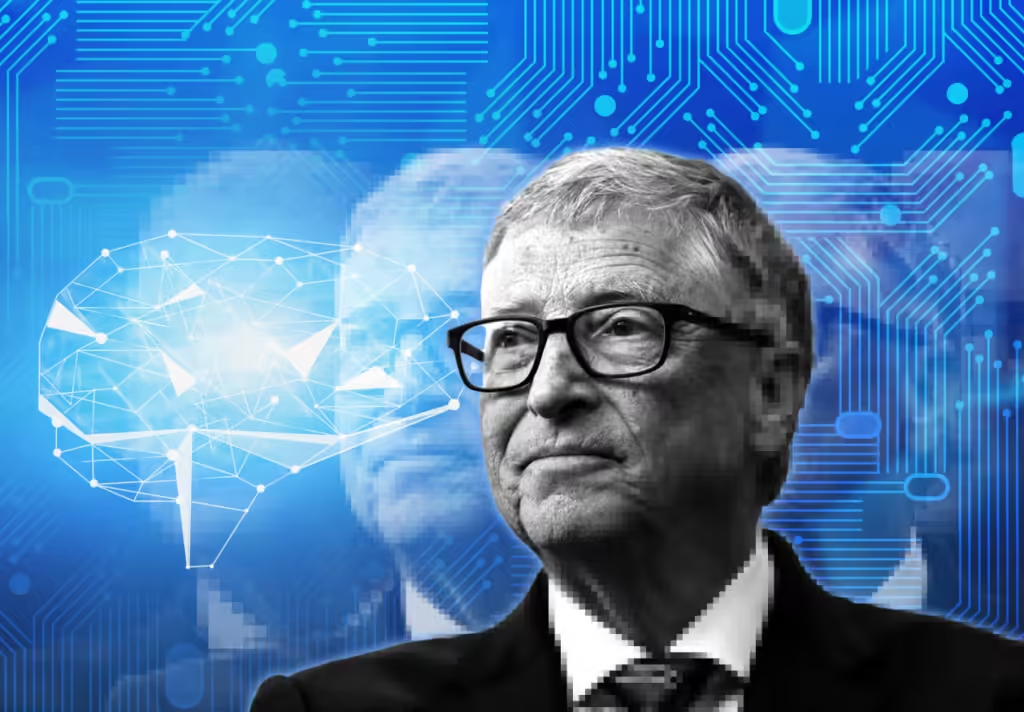Microsoft co-founder and billionaire philanthropist Bill Gates has issued a strong message about the rise of artificial intelligence (AI) and its potential to reshape the future of work. In a recent interview with CNN’s Fareed Zakaria, Gates highlighted that while AI-led automation could be a net positive for humanity, the rapid pace of technological change may outstrip society’s ability to adapt.
Bill Gates on AI Automation and the Future of Work
Gates acknowledged that AI automation is boosting productivity and freeing up time, but warned, “The question is, if it comes so fast that you don’t have time to adjust to it.” The billionaire emphasized that improved productivity should translate into smaller class sizes, more vacation time, and better quality of life, rather than job insecurity.
As the AI revolution accelerates, concerns over AI job displacement are growing. Gates noted that while white-collar jobs—especially entry-level roles are at high risk, blue-collar jobs may also face disruption in the near future as robotic arms and physical automation improve.
AI Job Displacement: What Experts Say
Gates’ caution echoes a previous warning from Anthropic CEO Dario Amodei, who predicted that 50% of entry-level white-collar jobs could disappear by 2030 due to AI adoption. Jobs in fields like customer service, data entry, and support functions are already being transformed by large language models and generative AI tools.
Gates added that once robotics technology catches up, it could begin affecting larger labor classes, including those working in manufacturing, logistics, and beyond.
Trump’s AI Policy and the Global Race for AI Leadership
The discussion comes on the heels of a major AI policy announcement by former U.S. President Donald Trump, who proposed an innovation-friendly framework aimed at making the U.S. a global AI leader. Trump’s plan includes rolling back regulations, with the exception of measures that prevent political bias in AI tools.
This highlights the growing importance of AI regulation, not just in protecting jobs but also in shaping the ethical development of AI technologies.
Bill Gates and Deep Research: AI for Everyday Learning
Gates shared a personal anecdote about using AI tools with Deep Research capabilities. “I have an advantage that I have very smart people I can call up… But now I actually use deep research and most of the time they’re like, ‘Oh yeah, you didn’t need me,’ he joked.
This highlights the transformational power of AI in education and research, even for those at the top of their fields.
Microsoft and OpenAI: Bridging the Digital Divide
Bill Gates also confirmed that he’s working closely with Microsoft and OpenAI to ensure that AI tools are accessible to low-income countries, particularly in healthcare, education, and agriculture. This reflects his broader vision of using technology to reduce inequality and improve lives in developing countries.
Career Advice for the AI Era
When asked how young people should prepare for the changing job market, Gates offered simple yet powerful guidance:
“Be curious, read, and use the latest tools.”
He emphasized that while embracing AI does not guarantee immunity from job disruptions, it offers the best chance to stay relevant and empowered in the evolving workforce.












More Stories
Solar stocks crash: Waaree Energies slumps over 14%, Premier Energies down 12% as US tariffs bite
Sam Altman plays down AI water-use claims, says energy is the real issue
‘Safety-first’ mindset accelerates transition of high-end technologies in mass-market vehicles: Techarc report